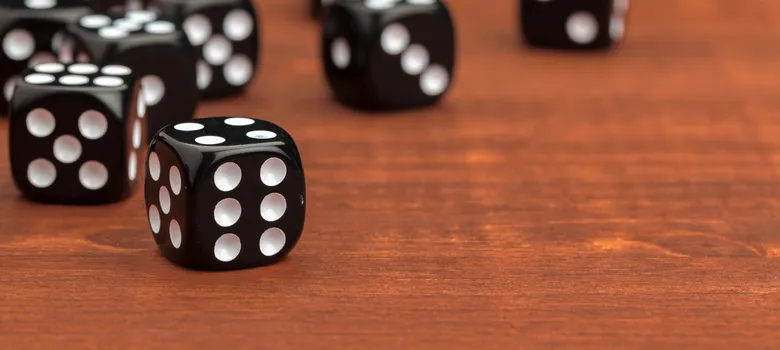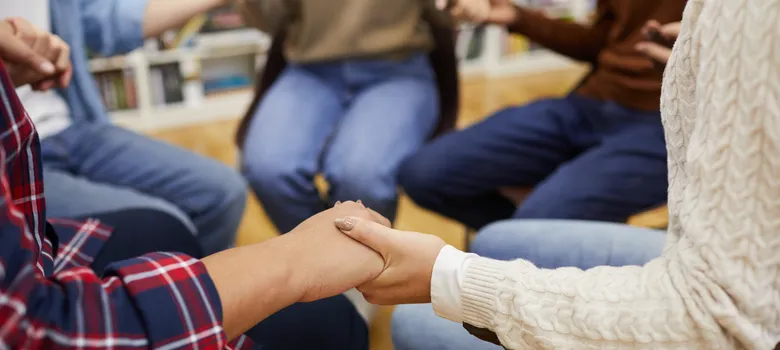
If you’re struggling with gambling addiction, there are evidence-based treatments that can help you regain control of your life. You may feel overwhelmed or unsure of where to start, but comprehensive support and professional help are widely available across Australia.
These include a range of treatments for gambling addiction, such as counselling, medication, support groups, and tailored interventions designed to meet your specific needs.
Evidence-Based Treatment for Gambling Addiction
A variety of treatments for gambling addiction have been shown to be effective. These include psychological therapies, medications, and structured support networks aimed at reducing gambling harms and promoting long-term recovery.
Cognitive Behavioural Therapy
Cognitive behavioural therapy (CBT) is considered one of the most effective forms of treatment for problem gambling. This approach helps you examine your gambling behaviour, understand the thoughts and emotions driving it, and develop strategies to resist the urge to gamble.
Through CBT, patients with gambling problems work systematically to replace unhelpful thought patterns with healthier coping mechanisms. Therapy sessions often involve setting goals, identifying gambling triggers, and tracking progress. Both online and in-person formats are effective, offering flexibility in how the treatment is delivered.
CBT for gambling addiction typically includes:
- Recognising and managing gambling triggers
- Reducing cravings and emotional distress
- Building healthy habits and routines
- Learning to cope with stress without gambling
Medication Options
Certain medications may help treat gambling addiction, particularly in cases involving intense urges to gamble. Opioid antagonists like naltrexone and nalmefene have been used to treat gambling disorder by modifying the brain’s reward system. These medications may help reduce the excitement associated with gambling and support recovery when used alongside therapy.
Although medication is not a standalone solution, research and clinical practice suggest it can be beneficial for some people. Medication may be especially useful when gambling co-occurs with other conditions like depression or bipolar disorder. Ongoing medical supervision is essential to monitor progress and address side effects.
Key facts about medication:
- Naltrexone and nalmefene are supported by current research
- Medication is part of a broader treatment plan
- Individual monitoring is required
Group Therapy Approaches
Group therapy is a valuable component of many gambling treatment programmes. Participating in a group provides emotional support, practical strategies, and a shared space for discussing challenges. These sessions are often guided by a therapist trained in interventions for problem and pathological gamblers.
Support groups such as Gamblers Anonymous provide peer-led help through a 12-step framework. While these groups do not replace formal treatment, they play a complementary role in the recovery process. Studies highlight their benefits when used alongside gambling therapy, particularly in building resilience and accountability.
The benefits of group therapy include decreasing isolation among problem gamblers, encouraging shared learning and peer support, and fostering long-term behavioural change.
Support Groups for Gambling Disorder
Across Australia, people with gambling problems can access a wide range of resources. These include confidential counselling services, free helplines, and educational tools designed to support ongoing recovery.
Professional Counselling Services
Professional counselling is central to the treatment of gambling disorder. Trained counsellors help you navigate emotional and behavioural patterns linked to gambling, create a personalised treatment plan, and provide ongoing guidance.
Services such as Gambling Help Online offer free and confidential gambling counselling, either in person, by phone, or online. These services are staffed by experts who use cognitive behavioural strategies, motivational interviewing, and relapse prevention techniques.
Counsellors may also involve family members in sessions when appropriate. This approach can strengthen support systems and address underlying issues such as substance abuse, anxiety, or other stressors. All services are confidential, with no obligation to disclose personal information.
Self-Help Organisations
Self-help resources and peer-based organisations provide valuable support to people experiencing gambling problems. Programmes like Gamblers Anonymous offer a space for sharing experiences and practical advice within a structured recovery programme.
These groups often operate across cities and regional areas in Australia, with online meetings available. They are designed to help participants focus on recovery, avoid gambling opportunities, and rebuild their physical and mental health and well-being.
National organisations also offer educational resources, self-assessment tools, and workbooks to assist in recovery. These can be accessed at any time and often support brief interventions for problem gambling.

Helplines and Online Support
For immediate support, free and confidential helplines are available 24 hours a day, 7 days a week. Gambling Help Online operates a national problem gambling helpline at 1800 858 858. Trained counsellors offer crisis support, referrals to treatment providers, and practical advice.
Features of gambling helplines include:
- 24/7 availability
- Confidential and free of charge
- Access to trained professionals
- Connection to local services and community supports
Online services also offer live chat, referral systems, and access to tools that help assess the severity of gambling. These platforms serve as a gateway to formal treatment and are particularly helpful for individuals who may be unsure about seeking help.
Lifestyle and Prevention Strategies
Lifestyle changes are a vital part of treatment for gambling addiction. By adjusting daily routines and managing finances, people with a gambling problem can reduce relapse risk and build a stable future.
Developing Healthy Habits
Replacing gambling behaviour with positive activities is crucial. Hobbies such as creative arts, physical fitness, or volunteering can provide structure and satisfaction. Social connection is equally important; connecting with others helps counter isolation and strengthens emotional resilience.
Routine exercise, adequate sleep, and a balanced diet support mental and physical health. Keeping a mood journal may also help identify gambling triggers and promote self-awareness.
Financial Management Tools
Effective money management plays a critical role in recovery. Creating a strict budget, limiting access to cash, and delegating financial responsibilities to a trusted person are key steps.
Banks and financial institutions now offer tools that block gambling transactions. These features can reduce impulse spending and are encouraged as part of a responsible gambling approach. If gambling has led to debt, working with a financial counsellor can help you build a realistic plan to repay what you owe.

What Sivana Bali Offers in Addiction Treatment
Recovery is never one-size-fits-all. For those facing complex challenges such as gambling addiction combined with substance use, places like Sivana Bali offer structured support in a calm, focused setting. With a multidisciplinary team and personalised programmes, we aim to address both the behaviours and the underlying causes of addiction, helping people reconnect with a more grounded and sustainable way of living.
Frequently Asked Questions
What are the most effective therapies for managing compulsive gambling?
Cognitive behavioural therapy is widely used to treat gambling addiction. This therapy helps identify and change unhealthy patterns of thinking and behaviour related to gambling.
Can medication assist in overcoming a gambling problem?
Medication may help reduce the urge to gamble. Medicines like naltrexone have shown benefits in research and clinical use.
What support groups are available for individuals struggling with gambling?
Gamblers Anonymous and similar support groups offer peer-based help through regular meetings and shared experiences.
How does cognitive behavioural therapy help with gambling addiction?
CBT teaches you to manage gambling triggers, replace negative thoughts, and develop healthy coping strategies.
Are there residential treatment programmes for gambling issues in Australia?
Yes, residential treatment is available at specialised centres across Australia. These programmes offer intensive therapy, education, and structured recovery support.
What steps should one take to seek help for gambling addiction?
Reach out to a professional or helpline, such as Gambling Help Online, for guidance and access to appropriate treatment services.
